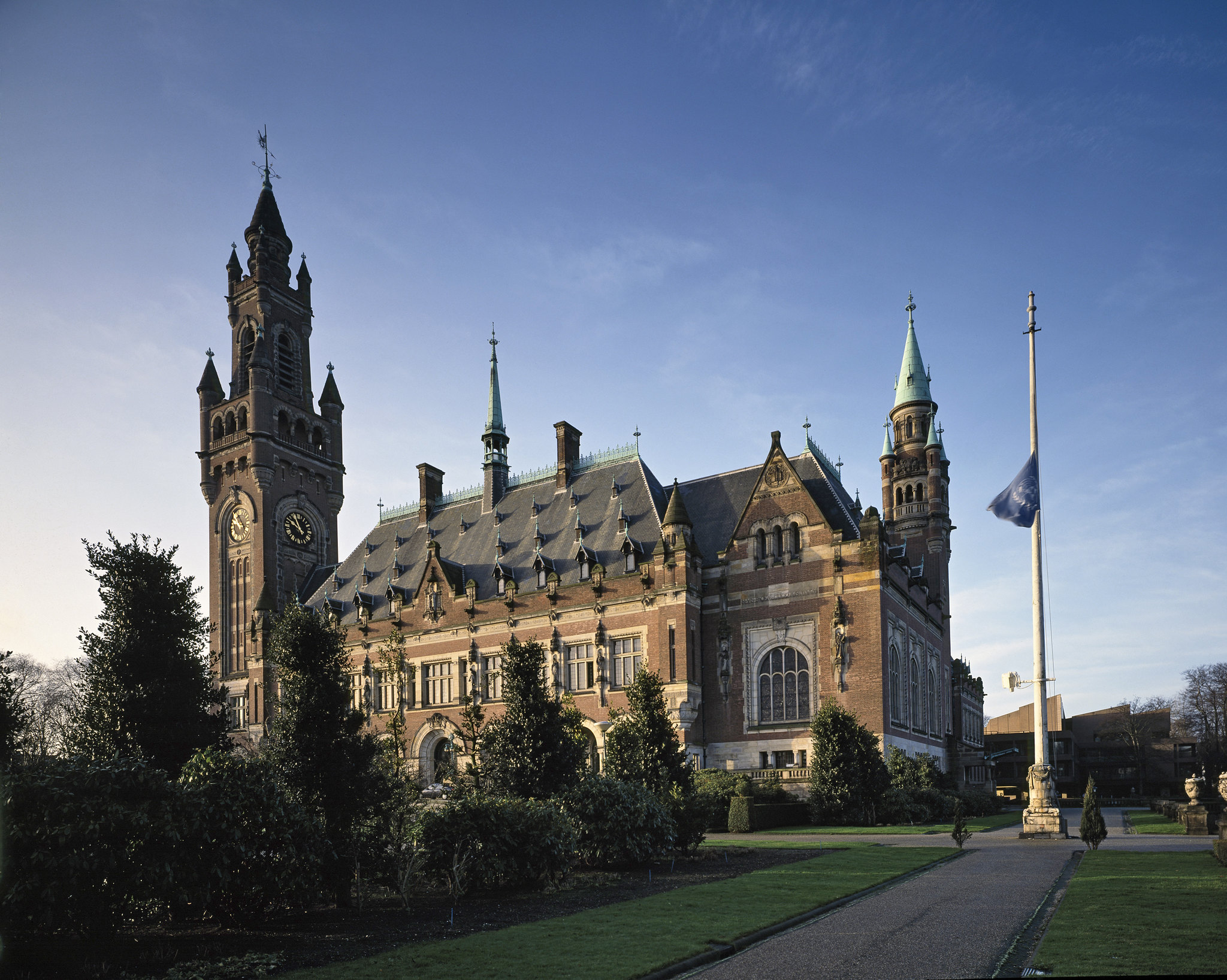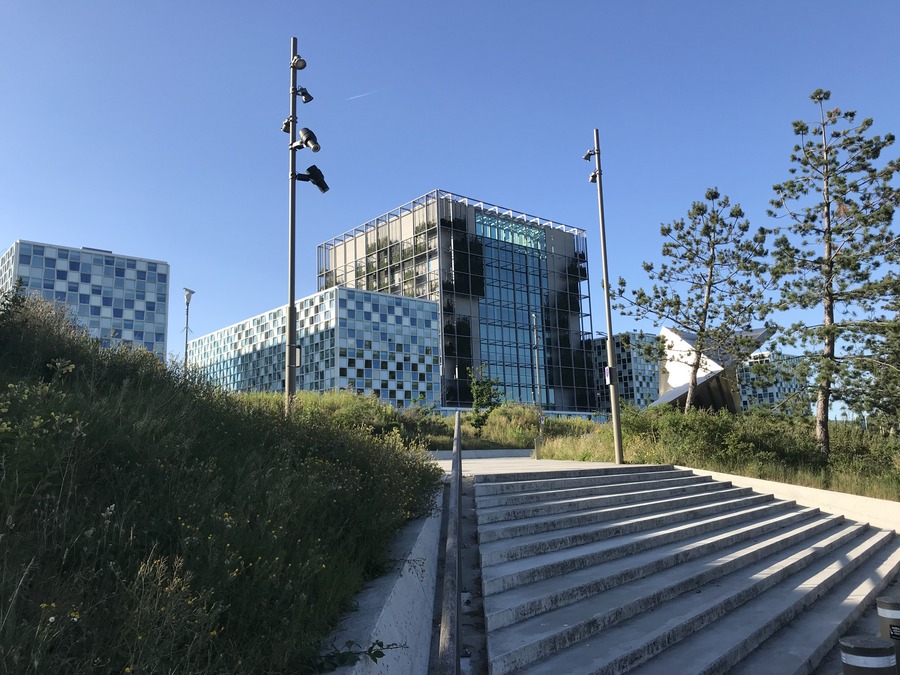Missing Histories in the ICJ’s Ukraine v. Russia Case

Published by The Lawfare Institute
in Cooperation With

One of the pretexts used by the Russian Federation in its current aggression against Ukraine is the protection of “Russian speaking populations” from alleged discriminatory practices by Ukrainian authorities. Under similar pretenses, Russia has reclaimed its “historical lands” by occupying the Crimean Peninsula in 2014, initiating a military operation in the Donbas region, and unleashing a full-scale war in 2022. However, this raises the overarching question: Is the prevalence of Russian language speakers in a certain territory sufficient to call a region “historically Russian?”
The recent International Court of Justice (ICJ) ruling in Ukraine v. Russia provides some insight into this question. On Jan. 31, the ICJ ruled on the long-awaited case, which concerned the application of the Convention on Suppression of Terrorism Financing and the Convention on the Elimination of All Forms of Racial Discrimination (CERD). Almost 10 years after Crimea was occupied, the ICJ found a violation of CERD concerning the lack of access to education in the Ukrainian language for ethnic Ukrainians.
While the decision raises awareness about Russian discriminatory practices in occupied Crimea, there are certain omissions that may reinforce Russian historical propaganda tropes. First, for those who read the judgment without any prior knowledge of the region’s history, it might seem that the prevalence of the Russian language on an occupied peninsula is a natural phenomenon, rather than a consequence of centuries-long colonial practices of Russian imperialism. Second, the ruling implies that everyone speaking the Russian language is automatically considered an ethnic Russian. This article critically examines these assumptions.
Is Crimea Historically Inhabited by Ethnic Russians?
One of the most problematic aspects of the ICJ case is the suggestion that the Ukrainian community in Crimea can be viewed as an “ethnic minority.” This omits a nuanced and complex history of Russification, aimed at substituting the Ukrainian language with Russian, which has proved successful in certain Ukrainian regions. Historically, the prevalence of schools with Russian language instruction on Ukrainian territory, or people speaking Russian in a particular region, does not necessarily mean the prevalence of ethnic Russians but instead indicates the success of the policy of Russification in those regions, including Crimea.
The Ukrainian government correctly emphasized that the Ukrainian community in contemporary Crimea encompasses both those who speak Ukrainian as their primary means of communication, as well as a significant number of Russian speakers who identify as Ukrainian. By contrast, the Russian side claimed that the Russian language was historically preferred in Crimea—and that Ukraine has always been a “deeply bilingual society”—without explaining the colonial origins of this phenomenon. At the same time, the Russians did acknowledge that some of those who identify as ethnic Ukrainians may not even speak the Ukrainian language at all.
Regrettably, the ICJ found a violation of CERD only in regard to 12,000 Crimean children who studied in the Ukrainian language prior to 2014. The complex historical legacy of the occupied peninsula and the legacy of Russification policies were omitted entirely from the final judgment. This oversimplifies Ukraine’s intricate language landscape and opens the window to further historical inaccuracies promulgated by Russia since Ukraine’s independence in 1991—including that certain regions are considered “historically Russian” based on language and, therefore, should be granted a “specific privilege.” In reality, the “specific privilege” means that the Ukrainian language should play a secondary or peripheral role in the “historically” Russian regions, with any attempts to popularize the Ukrainian language characterized as “repressions.” Therefore, labeling every Ukrainian who speaks Russian as “ethnically Russian” not only is inaccurate but also plays into Russian propaganda disseminated in the current war.
Should Everyone Speaking Russian in Ukraine be Treated as Ethnically Russian?
Given the nuanced and complicated history of the Crimean Peninsula—and the fact that some ethnic Ukrainians use Russian as a primary means of communication—it is important to bear in mind that all students in Crimea (around 200,000 in 2014) had the opportunity to study the Ukrainian language before the occupation, even if the main language of instruction was Russian. Hence, prior to 2014, there was room for the bilingualism that the Russian government mentioned in submissions to the ICJ. However, since 2014, the Russian authorities—who, according to the ICJ, are in full control of the public school system on the occupied peninsula—deprived Crimean residents of the possibility to learn the official language of their home country, thus turning bilingualism into Russian monolingualism.
In this way, the Russian government generates a false narrative, which the ICJ indirectly accepts and amplifies by omitting the history of Russification in the final judgment. Namely, it suggests that only some “ethnic Ukrainians” have a legitimate interest in the opportunity to study Ukrainian language on Ukrainian territory. But, given the historical legacy of Crimea, it is evident that the aggressive imposition of Russian language, in parallel with the suppression of Ukrainian language and culture, is part of an agenda to erase the Ukrainian identity of Crimean residents.
The ICJ enables the Russian authorities to legitimize the occupation both internally and externally, under the pretext of Crimean residents’ “historical preferences.” In reality, however, young Crimeans on the occupied peninsula might lack the most basic communication skills in the Ukrainian language not because of “historical preferences,” but simply because Russian authorities do not permit Ukrainian in classrooms. Therefore, Russification is utilized effectively in both past and present, creating a favorable background for erasing national identities on Russia-occupied territories.
On a positive note, the ICJ ruled that language is often “an essential social bond among the members of an ethnic group,” opening up further debate about the intersections among language, identity, and education. That has already been raised in the European Court of Human Rights judgment of Catan and Others v. Moldova and Russia, in which the applicants argued that the imposition of an alien script (Cyrillic instead of Latin) within educational institutions on occupied territories aimed to eliminate the linguistic heritage of the Moldovan population, forcing them to adopt a new “identity.” The dissenting judges noted that language is a component of cultural identity and an essential factor in both personal development and social interaction, especially among children.
In that regard, Russia’s actions on the occupied territories of Ukraine, including Crimea, mirror those in Moldova. During 10 years of occupation, a new generation has grown up without ever studying the Ukrainian language in school, separated from the Ukrainian cultural and educational space, and artificially forced to accept a Russian identity. Based on historical experiences, the inability to study Ukrainian language in educational institutions strengthens Russia’s intent to erase Ukrainian identity within occupied territories and indirectly legitimizes occupation.
***
The ICJ’s Ukraine v. Russia decision has regrettably omitted the history of inherently colonial practices of the Russian government, which suppressed national languages on its conquered lands and conducted a repressive policy of Russification, lasting for centuries and continuing today. Moreover, it allows the prevalence of the Russian language to be labeled as a “historical preference,” imposing a Russian identity on the residents of its occupied lands.
The importance of understanding these historical processes has only increased as the full-scale invasion has significantly expanded the geography of Russia-occupied territories. Since February 2023, Russia has formally “incorporated” the educational system of occupied Donetsk, Luhansk, Zaporizhzhia, and Kherson regions into the Russian federal system. This event not only subjected all educational institutions to teaching in accordance with the Russian federal standard but also mandated Russian as the language of instruction. As can be seen from the Crimean example, the Russian policies on occupied land—including those concerning language—are aimed at making the occupation permanent. The longer Russia stays on Ukrainian soil, the more difficult the process of reintegration will be, as residents of the occupied territories are deprived of the opportunity to learn the language of their home country.



.jpg?sfvrsn=564b5f50_5)

